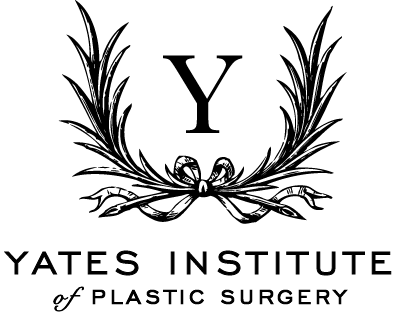How do I prepare my body for plastic surgery?
The decision whether or not to undertake surgery, especially in the case of elective interventions (on-demand interventions, such as those in cosmetic surgery), involves balancing the options, choosing the right surgery time, and emotional and physical training to ensure the best post-surgery results.
Pre-surgery training involves both a physical component (diet, physical activity, smoking cessation, etc.) and a mental component.
Plastic surgery preparation – essential details
Nutrition
The last thing that is on the patient's mind when he or she is about to undergo surgery is to maintain a healthy diet. But the rapid recovery after surgery depends largely on the diet you have before the surgery. You need to know that the outcome of the surgery, including the healing process, may be directly related to the healthy diet you will need to consider until the scheduled surgery.
After the surgery, there are often swelling, bruising, redness, scarring, and sometimes reduced patient mobility. Following a healthy diet beforehand and adding certain food supplements can minimize the risks and speed up the recovery after the surgery.
Before your surgery, you should also consider four key nutritional tips like not going on a diet, drinking plenty of water (including a glass of water about 30 minutes before eating), eating more fruits and vegetables than you normally do, and eating a little more protein and fewer carbs than usual.
Protein can be considered the most important food that should be consumed before surgery (46 grams/day for women and 56 grams/day for men is recommended). It is found in every cell, tissue, and organ to support the immune system. Amino acids in protein-rich foods are used to make new blood and tissues.
Here is a list of what your menu should contain before a surgery:
Healthy protein: fish, chicken, lean red meat, eggs, beans, soy, tofu, nuts
Cereals: wholemeal bread, brown rice
Vegetables: lettuce, carrots, broccoli, sweet potatoes, bell peppers
Fruits: citrus, strawberries, apples, berries, bananas, avocados
Dairy products: milk, cheese, yogurt, vegetable milk alternatives
Healthy fats: olive oil, avocado, nuts, seeds
On the day of the surgery, if it takes part in the morning, you are forbidden to eat or drink anything, and if it performed in the afternoon, you can consume yogurt and drink water 4 hours before the surgery.
Please note that if you take nutritional supplements, including vitamins or herbal supplements, homeopathic products, you should tell your surgeon first. There are some nutritional supplements that interfere with blood clotting and may complicate your surgery and/or its outcome.
There is a whole list of supplements to avoid before surgery. Most supplements act as blood thinners, so it is essential to avoid them at least three weeks before surgery.
The supplements that can help you during pre-surgery preparation and post-surgery recovery are:
Arnica
Bromelain
Vitamin A + C
B - Vitamins
Zinc
Selenium
Copper
Vitamin K, needed for blood clotting
Your doctor may suggest that you stop taking nutritional supplements until after the surgery.
Medical tests
Medical tests that reflect the patient's health are useful, as they can give certain information to the anesthesiologist. This information can influence the type of anesthesia. Depending on the type of plastic surgery, patients can undertake several medical tests that can be simple or complex, especially when two or more procedures are associated.
The usual tests contain a hem leukogram, tests on biological constants, and electrocardiograms. In the case of some interventions, doctors can ask for a lung or skull X-ray (for rhinoplasty), ultrasound or mammography of the breasts for breast surgery, etc. For some patients, interdisciplinary consultations may be requested - cardiology, gynecology, nutrition consultation, and diabetes.
Here is the information you need to provide to your anesthesiologist:
Medical history and previous surgery, if applicable
Ongoing or completed medical treatments
Consumption of alcohol, cigarettes, recreational drugs
Allergies, colds, infections
Any health issues that may be relevant
During the pre-anesthesia consultation, the doctor will also present the type of anesthesia and its possible risks and side effects. These depend not only on the accuracy of medical procedures but also on the body's response to anesthetic drugs, and there is no way to eliminate them.
Do not hesitate to ask the doctor any questions in order to have a clearer understanding of the development and implications of anesthesia.
Drug abuse and use of medication
It is forbidden to take drugs like cannabis, cocaine, heroin, and others as such before or after plastic surgery.
If you take drugs or medication in any form, you should discuss it with your surgeon.
Some patients fail to disclose the use of psychoactive drugs as they lack an understanding of the risks associated with those medications. By documenting all the medication you use, you can help minimize your own surgical risks.
The first step is the medical consultation with the surgeon who will perform the plastic surgery. During this consultation, patients can express all their wishes, fears, and concerns about the use of medication, its development, and any possible risks.
Patients are advised not to use medicines that could dilute the blood ten days before surgery as they may be responsible for bleeding during surgery and post-surgery. The doctor will give other specific instructions during the consultation.
Mental preparation
Once you made the decision to have surgery, you need to find the answers to questions such as: What type of surgery to choose? Did I choose the right doctor for the surgery? How will my body react after the surgery? How long will I take to recover?
Some interventions involve changing your lifestyle and long-term behavior, requiring specialized psychological support (obesity surgery, cosmetic surgery that significantly changes the physical appearance).
Other factors that you need to consider
Once the day of the intervention is set, in the period preceding it, it is important to follow the doctor's advice and not to overwork your body, as it is known that surgery puts the body under both physical and emotional stress.
Even very experienced surgeons prefer to operate on healthy patients, so it is good to get enough sleep, avoid alcohol, have a healthy diet, avoid taking Aspirin and non-specific anti-inflammatory drugs for 7-10 days. You will receive individual and specific instructions about the medicines you are prescribed. You can discuss more about this with your doctor during the consultation.
Final words
Preparation is an important stage of the plastic surgery intervention. During this time you should adopt a certain behavior and follow the indications of the plastic surgeon to avoid complications during and after the surgery. A healthy diet is crucial for a speedy recovery. Make sure to avoid smoking, alcohol, drugs and even natural supplements for at least 10 days before the intervention as they could also trigger complications.


